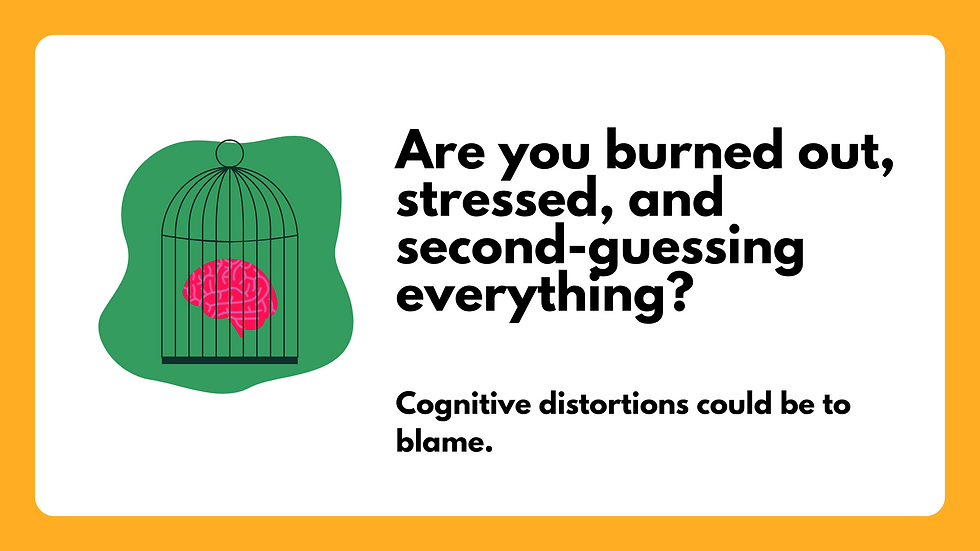How a Daily Walk Can Reduce Stress and Prevent Burnout
- Jenn DeWall
- Mar 5
- 3 min read

In today's world, stress and burnout have become the norm rather than the exception. High-achievers often push themselves to the limit, constantly juggling responsibilities, deadlines, and expectations. But what if the key to reducing stress and preventing burnout was as simple as taking a walk?
Walking is one of the most underrated tools for mental health, yet research consistently shows its powerful effects on stress reduction, emotional regulation, and overall well-being. Here’s why walking should be a non-negotiable part of your self-care routine.
1. Walking Lowers Stress Hormones
When you’re stressed, your body releases cortisol—a hormone linked to anxiety, tension, and burnout. Walking, especially in nature, has been shown to lower cortisol levels and trigger the release of endorphins, the body’s natural stress-relievers.
A study published in Health Promotion Perspectives found that just 20 minutes of walking in a natural environment significantly reduces cortisol and helps the body return to a relaxed state. Even if you’re in a busy city, a short walk outside can shift your nervous system from fight-or-flight mode to a calm and focused state.
2. Walking Boosts Mood and Mental Clarity
Ever noticed how a walk can clear your head? That’s because walking increases blood flow to the brain, enhancing cognitive function, improving focus, and lifting your mood.
When you walk, your brain releases dopamine and serotonin, the “feel-good” neurotransmitters that help fight anxiety and depression. This is why many therapists and mental health experts recommend walking therapy as a natural remedy for stress management.
If you're feeling overwhelmed at work, take a 10-minute walk outside. You’ll return feeling refreshed, focused, and more in control.
3. Walking Helps Prevent Burnout
Burnout happens when chronic stress depletes your mental and physical energy. The World Health Organization (WHO) recognizes burnout as an occupational phenomenon, and high-achievers are particularly vulnerable.
Walking provides a physical and psychological break from stressors, allowing your body and mind to reset. A 2020 study in The Scandinavian Journal of Medicine & Science in Sports found that people who walk regularly report lower levels of job-related stress and burnout symptoms.
Instead of pushing through exhaustion, consider walking as an investment in your long-term success. Even short walks during the day can improve resilience, making you more equipped to handle pressure.
4. Walking Enhances Creativity and Problem-Solving
Struggling with a mental block? Walking can help! Studies from Stanford University found that walking boosts creativity by up to 60%. The rhythmic motion of walking stimulates divergent thinking, helping you generate new ideas and solutions.
This is why some of the greatest thinkers—like Steve Jobs and Albert Einstein—used walking as a tool for brainstorming and problem-solving.
Next time you’re stuck on a project or overwhelmed by a tough decision, take a walk and let the ideas flow.
Make Walking a Daily Habit
The beauty of walking is its simplicity—you don’t need fancy equipment, a gym membership, or extra time in your schedule.
You can:
✅ Take a walking meeting instead of sitting in an office
✅ Go for a morning walk to start the day with clarity
✅ Use a lunchtime stroll to reset your mind
✅ Walk after work to decompress and transition from work mode to relaxation.
Even 10-15 minutes a day can significantly impact your mental and emotional health.
So, next time stress starts creeping in, step away from your desk, put on your sneakers, and take a walk—your mind and body will thank you.
Jenn DeWall is a Mindset & Mental Health Speaker who specializes in Burnout, Confidence, and Emotional Intelligence



Comments